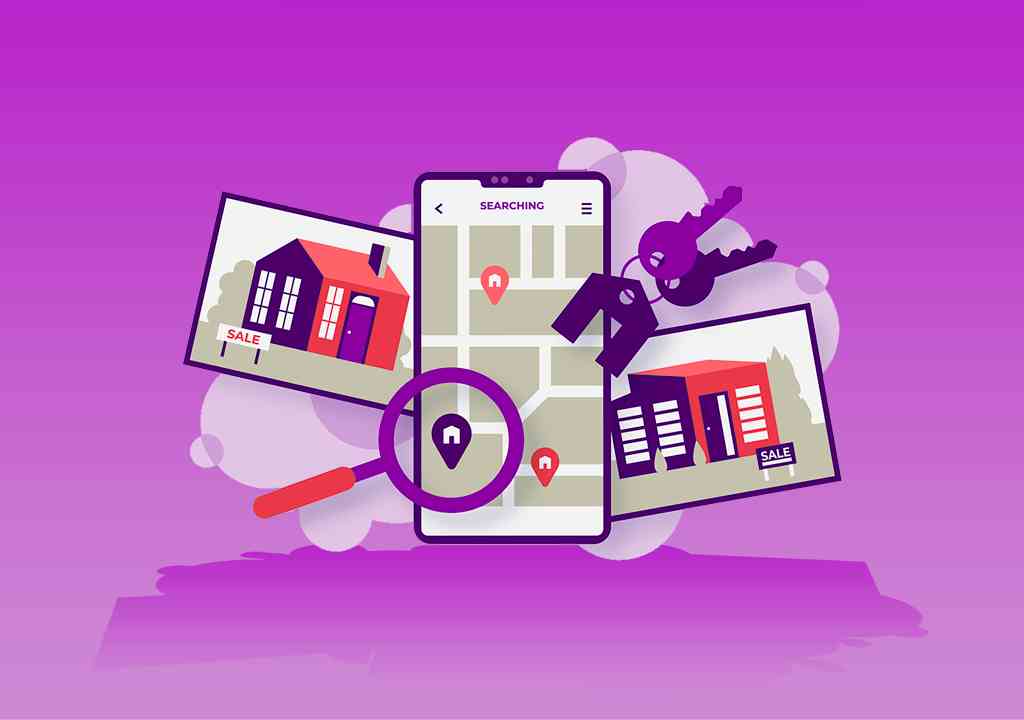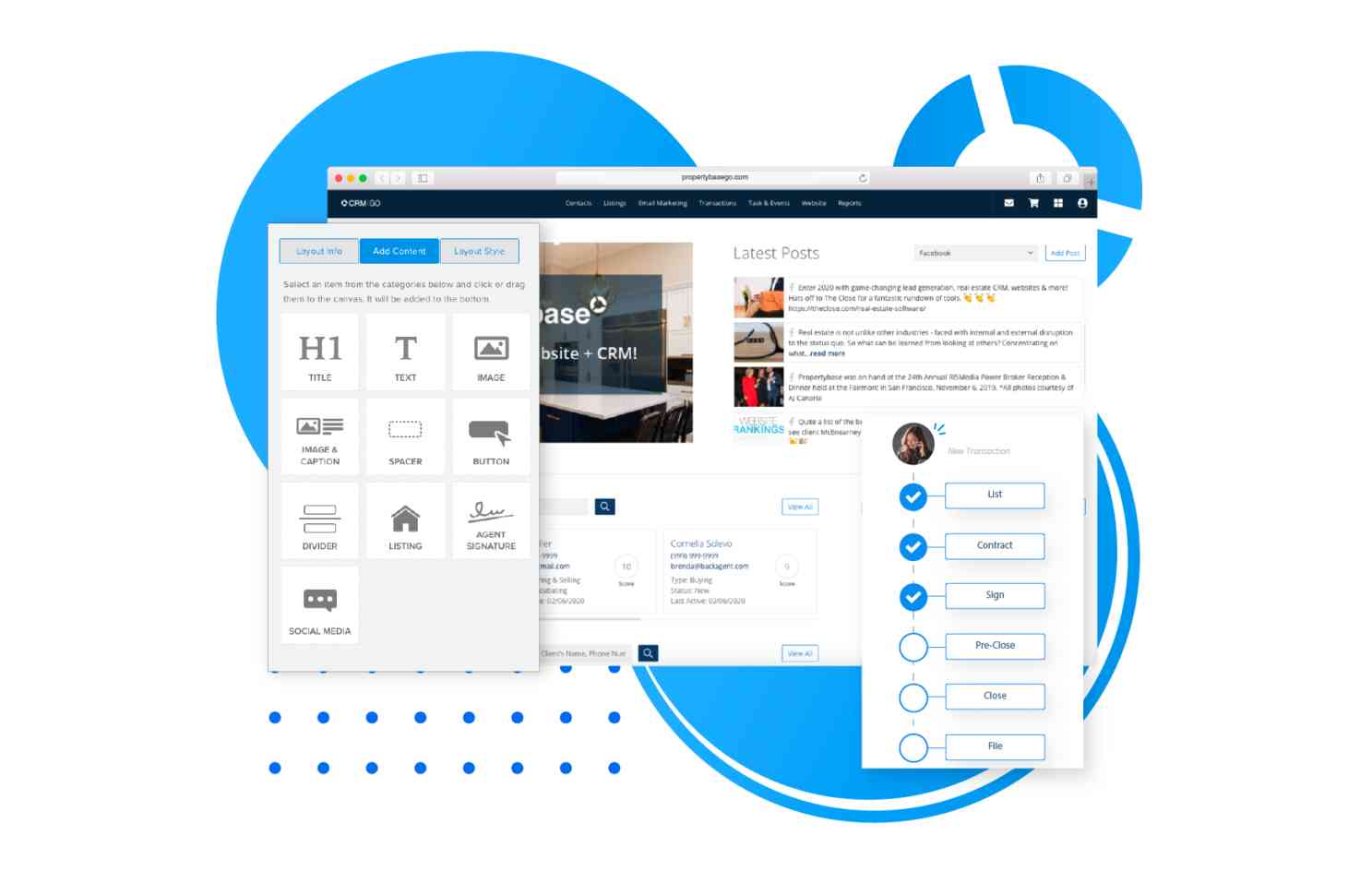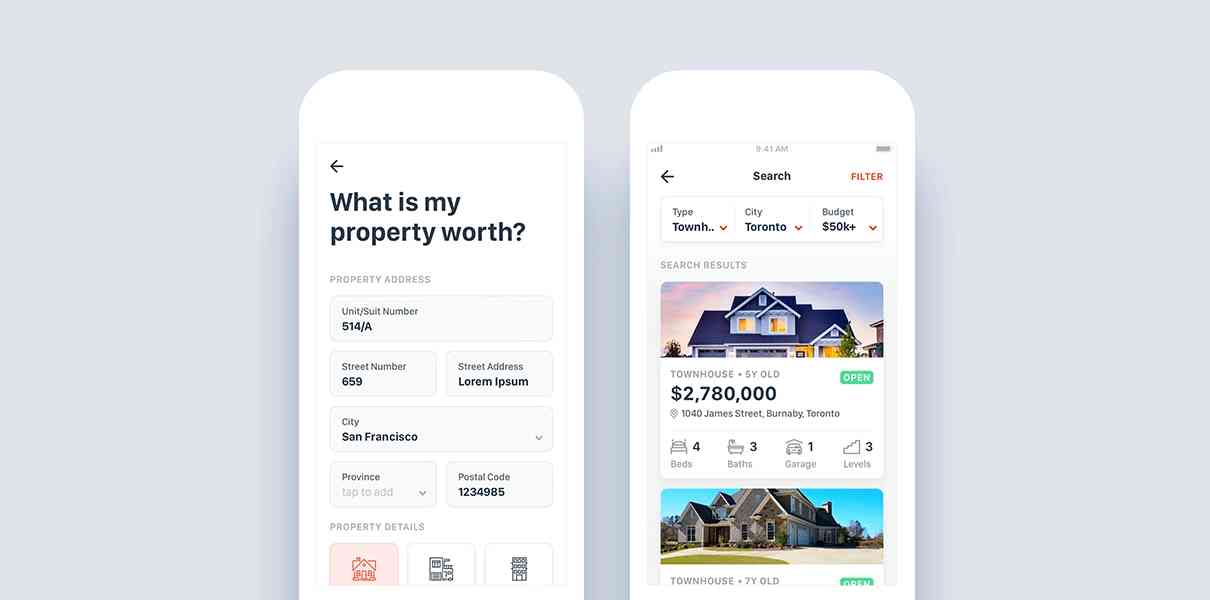In Software Development
What is Software for real estate agencies? In order to increase productivity at work, it is essential to have in one's tool suite a series of computer programmes and products that simplify work in a variety of ways.

Management

This need becomes evident when one considers that digitisation is pressing and what makes it necessary is not only the pace of work but also the expectations of customers, who expect more and more in terms of efficiency, productivity and satisfaction.
What is Real Estate agency software
Buying a house is a fundamental step for many citizens and in this sense the sums demanded for the purchase make buyers expect the best quality, also in service.
In this sense, it is good to know what software for estate agents is. They are usually applications developed with the aim of facilitating the work of all those involved in the process of buying and selling a property on behalf of a third party, i.e. to simplify internal economic management activities.
Of course, this applies to real estate agencies as well as to property sellers and buyers, offering tools and instruments to monitor all the transactions involved, both in purchase management, for residential and commercial properties.
In this sense, it can be said that a real estate agency software also serves to calendar all possible and eventual appointments and inspections with customers, both buyers and sellers, of a given property well identified at the time of signing the mandate contract with the agency. It can be an app that is built with SaaS model or a standalone software - for example, created with the help of real estate website development services.

Real Estate software example
Controlling sales stages with real estate agency software
Thanks to the functionalities of estate agency software it is possible to keep all phases of the sales process under control, especially if these involve several figures.
One thinks, without any claim to completeness, of the presence in addition to the seller, of the estate agency, of the individual contact person, of the buyer of the property, of the bank responsible for taking out the loan, of the notary stages etc etc.
All these phases would otherwise be irreconcilable with each other, making the work of the agency operator even more complex due to the complex series of matters to be coordinated.
In this sense, with real estate agency software it is possible to have error-free management of the activity within a single digital space, with some functions exploitable directly in the cloud where possible, so as to ensure access to the real estate files even without the material presence in the office or wherever the material activity takes place.
Of course, this depends on the type and developer of the real estate agency software, which is why one should choose carefully the first package purchased.
What real estate agency software is good for
From a purely application-related point of view, software for estate agencies serves, first and foremost, to guarantee complete and accomplished control over all the firm's activities, providing suites or tools that are absolutely essential to better organise the work required to ensure greater efficiency at work and greater customer satisfaction, whether buyers or sellers.
This aspect must not be overlooked because, inevitably, a better opinion of users corresponds to an increase in the prestige of the real estate agency, which ultimately translates into positive publicity, the first way to make oneself known and increase the real estate agency's turnover and annual revenue thanks to the arrival of new commissions, clients, properties and all the related paid activities.
Software for real estate agency: processes
In any case, software for real estate agencies serves, principally, to control and monitor all the activities carried out by the firm, hence not only the sale and purchase but also the writing and maintenance of master data to speed up the work, guaranteeing easier access to the resources already present within the firm's systems.
In addition, this facilitates management processes and encourages the matching of supply and demand within an ordered and catalogued portfolio according to all the criteria of greater efficiency and ease of consultation.
Finally, an estate agency software can never be without a calendar that protects owners from possible forgetfulness regarding inspections and appointments with clients.
In any case, the software allows the individual real estate agency agents to better administer the properties for which they are responsible, making better classification and possible provision of support possible: if, then, one uses a cloud-based real estate agency software, accessing the personal workstation and working becomes even easier thanks to the fact that one does not have to own specific hardware.
Limits of a real estate agency software
In this sense, one cannot speak of any real limitations of software for estate agencies as each product has its strengths and weaknesses.
One objective limitation of certain programmes is certainly that of necessarily having a fixed or portable use system with hardware capable of reproducing the content, effectively limiting its use: this can be remedied by considering the purchase of software for estate agencies in the cloud, effectively making it possible to use the product at any time and place of the day.
Usually, the possibility of using the programme directly via the Internet does not require an additional cost, but if this were the case, the expenses would certainly not amount to an excessive cost because the management and use of these platforms is now widespread.
Software solutions for a Real Estate Agent
A real estate agent is in charge of matching the demand of potential buyers with the supply of properties for sale or rent. To do this, the agent must use tools that enable him to match supply and demand in an agile manner. To meet these needs an agency can create a Cloud Management System that shows:
- the filterable list of properties under management and their owners
- the filterable list of contacts who have instructed the agent to search for a property
- the list of possible compatible pairs [property, contact]
- the status of negotiations in progress
- the history of concluded negotiations.

Real Estate software: property search app
Real estate software development services
Real estate software can be of different types and purposes. They can be standalone ad aggregators or apps specifically for real estate agencies that allow for efficient transaction management and act as a kind of CRM system. They can also be apps for renting flats or selling real estate.
But real estate app development has features that unite them all. Let us discuss them in more detail:
- A flat search app needs to be user-friendly. In order for the user to interact comfortably with the app, the user's route should be thought through, making it the best and fastest possible. The design of the app should meet the interests of the target audience and not be overwhelming.
- Also, for such an application, you should think about a convenient system of filtering objects, which allows you to quickly find the necessary information. This is relevant to notice boards, aggregators and estate agents alike.
Stages of development
The development of a real estate software can be divided into several stages:
- Data analytics. This is where the most important information about the project is gathered and the development strategy and its nuances are defined. The requirements of the customer are updated.
- Terms of Reference. For proper understanding of the development requirements by the team, the terms of reference is prepared. It specifies the main provisions for the design, programming, testing and launching the product.
- Programming. This stage includes the actual writing of the programming code. The developers, first, form the structure of the application and then fill it with functionality.
- Testing. Testers study the developed application for errors, as well as test different interaction scenarios on different types of devices to avoid incorrect operation in future.
- Launch of the software app. The finished product is placed in app shops and made available for download by users. If necessary, developers will continue to update and support the service.

